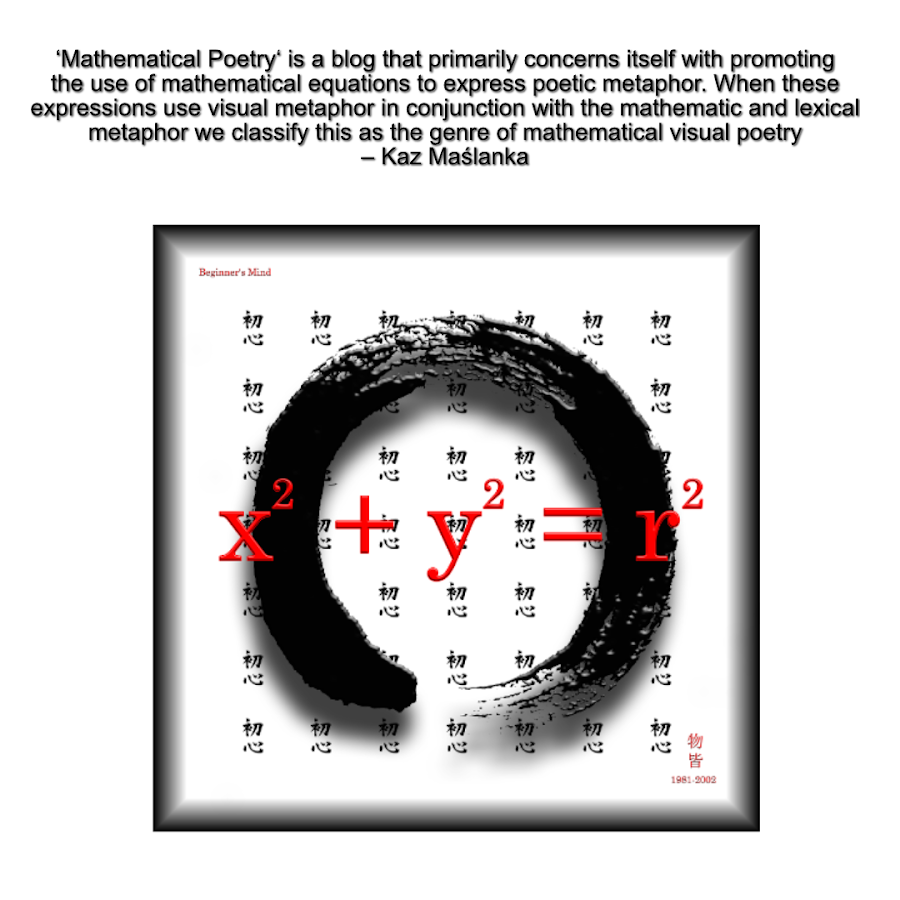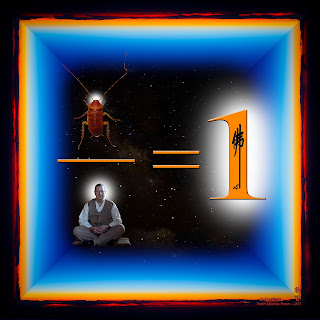I am grateful to have received an award at the "Art San Diego" art fair.
(Left) Kaz Maslanka (Right) Oceanside Museum of Art Curator Vallo Riberto
Some background and tools to access this piece:
I am fortunate enough to have married a wonderful Korean lady who has given me the ability/access to study Zen in the temples of Korea. Chun Jin Sunim and the Tongdosa monastery has been instrumental in inspiring me to research and apply to my practice.
One of the most important experiences I have had is studying the
Diamond Sutra as taught by Hyon Gak Sunim. It is chapter thirty-one of the Diamond Sutra that inspired the work shown in the photo and it is chapter thirty-one that inspired me to concern myself with the concept: "We are all made of the same substance."
The great Zen master Seung Sahn Sunim puts it this way:
"In the big cookie factory we call earth, there are many kinds of cookies. They take many different shapes and have different names, but they are all made from the same dough. Because they are all made from the same material we can make God, we can make Buddha, we can make Demon, we can make Satan. The myriad things in our world all have different names and forms, but the taste is the same. Even people come in many different shapes and colors: western people, Chinese people, Korean people. They all have a different appearance, but their substance is the same. So, the Buddha said, "Above is the dwelling place of all Buddhas, below is the six realms, and all have the same substance. One by one, everything is complete; one by one, everything has it. One by one, everything interpenetrates everything else. One by one, each thing is complete."
The thought crossed my mind that even the most disgusting creatures are the same as myself. So I was inspired to make this mathematical visual poem to point at this transcendent idea. If you think about five divided by five equaling one, or a million divided by a million equaling one, then you can see that anything divided by itself equals one -- including a cockroach divided by me.
On a side note, a few years ago I took a Tongdosa Korean Monk to Mount Whitney so that he could hike the John Muir Trail. It was summer and the nights were beautiful -- black and saturated with stars. One night, I looked up into the south and could see Sagittarius and Scorpio adorning the firmament. My mind went to the fact that located between those two constellations is a big black hole operating at the center of our galaxy. Inspired, I shot a photo of the vista and used it as the background of this piece such that the center of the image is the center of the galaxy. The orange-blue frame of the piece is a photo of a sunset that I used to run the perimeter to create a portal pointing inside. In addition, the Chinese character drawn inside the number "1" is the pictograph "Buddha's Mind."
I recently showed this piece in Osaka, Japan. But before I sent it, I pondered the dubious title, "One" -- it seemed tautological. I contacted Hyon Gak Sunim and explained my dilemma and the need for retitling. He found it interesting that I contacted him on this piece for he said this expression was his favorite piece out of all my work. I thanked him for his gracious words and asked him if he would be kind enough to re-title this piece. He immediately said, "10,000 Dharmas return to ..." and explained that the title comes from the ancient Chinese Kong-an: "10,000 Dharmas return to One. Where does the One return?"
Hyon Gak Sunim said that this piece points directly to this
ancient Chinese Kong-An (Zen Koan).
[Note: 10,000 is the equivalent concept of infinity in ancient Chinese]
An interesting thing to ponder is what happens when one puts themselves (self) in the denominator and "take the limit" of self approaching zero? In other words, when one makes the value of the self "zero"* the resulting "one" (Buddha's Mind) turns into infinity - thus returning infinity to the one.
*Mathematics forbids dividing by zero - but we can take the limit as a value approaches zero.





